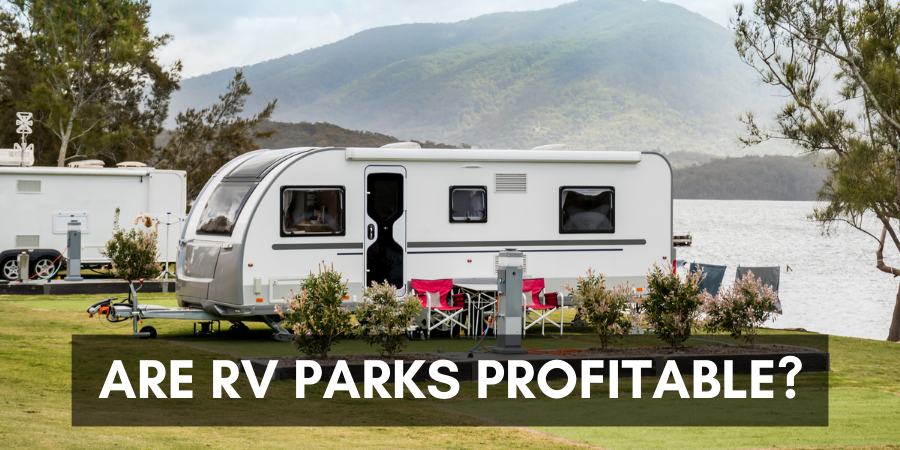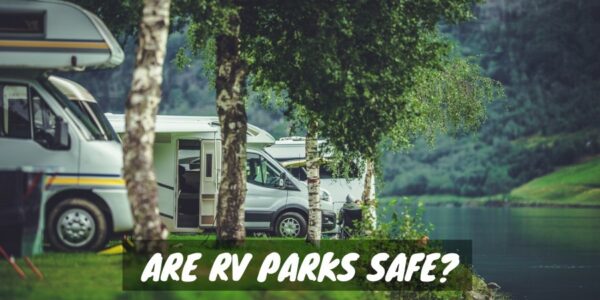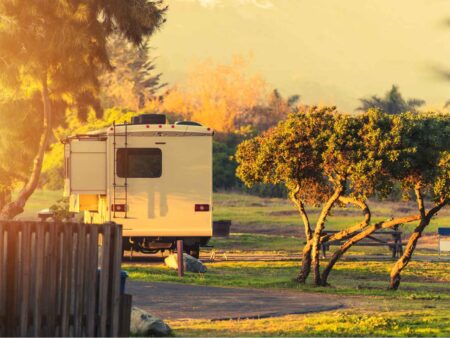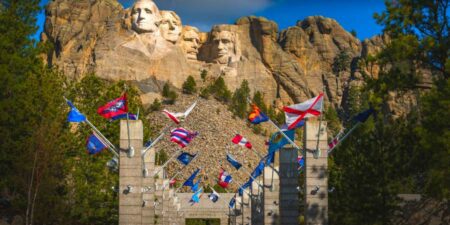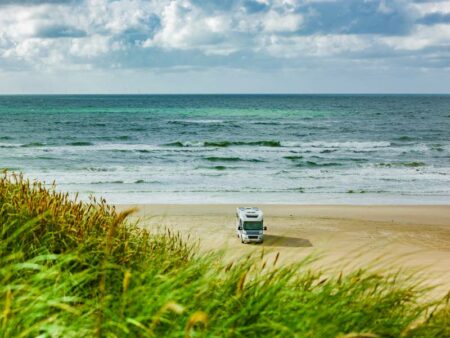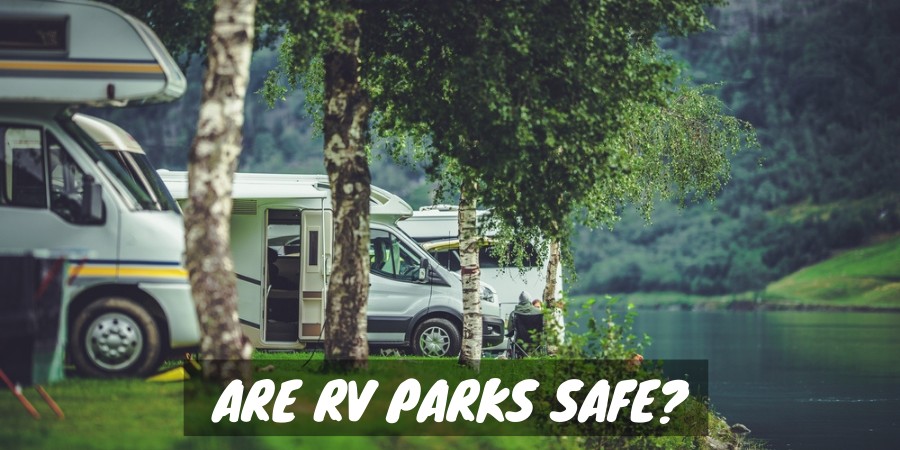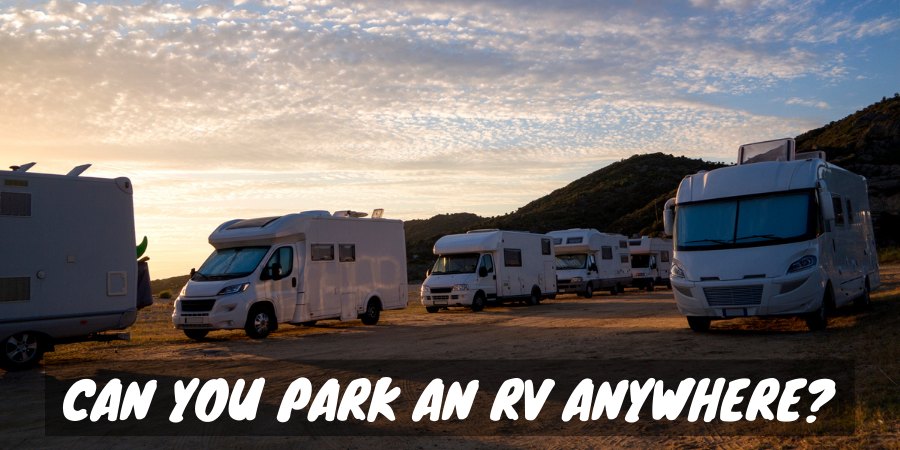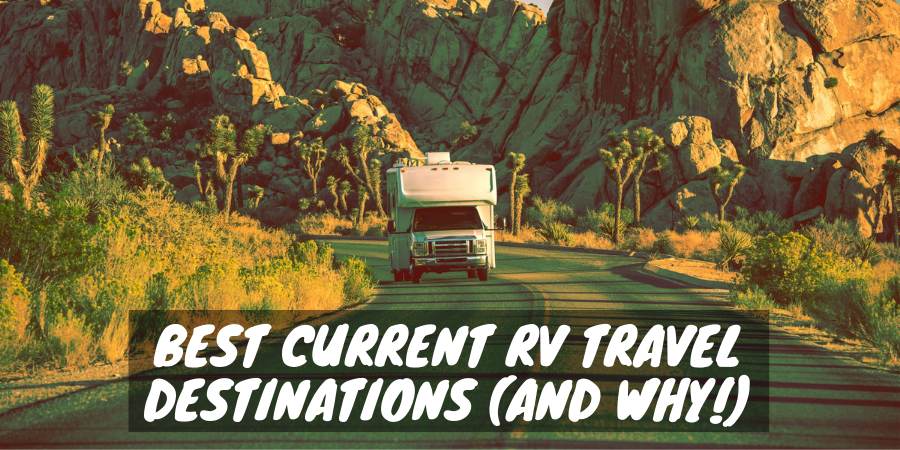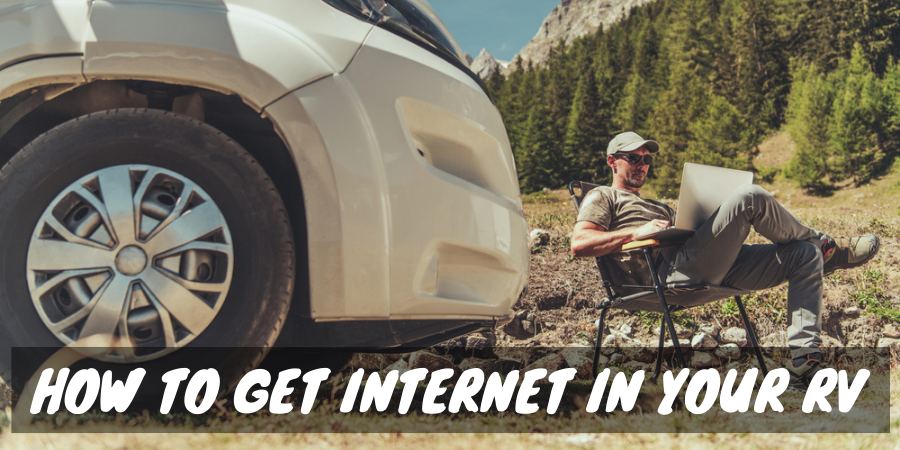The RVing world is exploding with new and current recreational vehicle owners vacationing in their campers because it’s safe and affordable.
This fact translates into the need for more RV parks to handle the influx of campers looking for a place to relax. That’s why the interest in owning a campground is rising, but you may wonder, are RV parks profitable?
Yes, RV parks provide a great return on investment, and I give you all the details right here in this guide.
Inside, you’ll learn:
- Average RV park profit
- Initial investment to start a campground
- Pros and cons of RV park ownership
- Top features guests look for
When you know how to operate a successful RV park, you’ll have customers scrambling to book campsites and keep your profits rolling in, so keep reading to see if RV park ownership is for you!
How Much Do RV Parks Make?
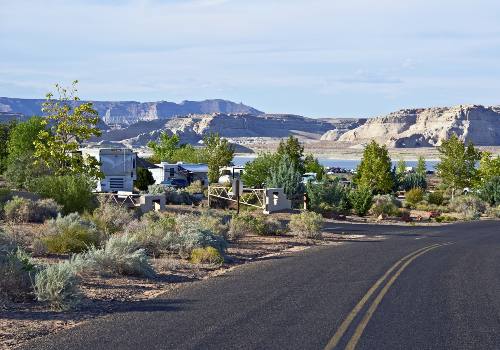
Current statistics show that the average RV park owner’s return on investment is between 10%-20%. Even at the scale’s low end, that’s a good annual return, and it doesn’t take but a few changes in how you operate an RV park to increase profits year over year.
While the average RV park owner makes $50,000-$90,000 a year for personal income, I know several park owners who make five to ten times that in profit. Many RV park owners live on the property, which reduces living expenses, so any profits feel even more significant.
Keep in mind that some RV campgrounds are only open two or three seasons a year, which decreases the average income of owners. If you have a park that is open year-round, your return on investment is only going to grow if you can keep guests happy.
How Much Does It Cost to Start an RV Park?
The average investment to start an RV park from scratch will be in the $1M range. The initial cost of the land, installing infrastructure, getting permits, putting in a pool, bathhouses, office, roads, and more will add up quickly.
Many people who build a campground from scratch can control costs by using land they already own and starting with 20-30 campsites and increasing the size over time as they recoup some of their expenses. You can fit 8-10 campsites per acre of land.
Starting small is very smart, as you can then tailor your park to your customer’s needs by listening to what guests like and don’t like about the current setup.
A great RV park is never about what you think a guest will want. It’s about giving them the features and amenities that make their camping trip as stress-free and fun as possible.
For those looking to take on a currently operating or recently shut RV campground, the initial investment will be much less as all the infrastructure is in place and hopefully functioning well.
Refreshing or expanding a single campsite may cost $2,000-$5,000 versus the $15,000-$25,000 average for installing one from scratch.
Once all the buildings and campsites are complete, you still need to think about the costs of good landscaping, paying staff, insurance, and providing supplies to keep things running.
The last option for owning an RV park is to go with a franchise, but they often require a hefty initial investment.
For example, KOA parks will require upwards of $4M to start a park bearing their name.
While you’ll eventually benefit and profit from the name and reputation of a franchise RV campground, you also need to consider you’ll always have to run your business the way the corporate office wants, along with giving them a percentage of your profits.
Overall, any RV park you own can be a high-yield investment, even more so than other real estate assets. So if you’re still interested, let’s look at the benefits and disadvantages of campground ownership.
5 Pros of Owning an RV Park
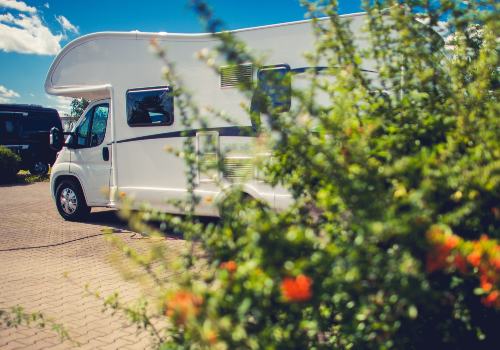
1. You Can Create the RV Park You Want
When you own a campground, you’re the boss and can create a park that captures all your dreams and personality.
You can provide the vibe you want for either a fun, energetic, family-friendly park or a low-key, adult-oriented getaway that is quiet and serene.
You also get to set the rules for everything, from office and quiet hours to your personal work schedule.
The ability to run the RV park how you want is the best payoff for all the money and hours you’re going to invest.
2. You Can Live Onsite for Free
If you’re buying into an established campground, you can move in and avoid hefty mortgage payments.
Depending on how much involvement you plan to have in the park, you can live for cheap and allow a manager to handle the day-to-day tasks but still benefit from being right there to oversee operations.
3. Campgrounds Can Provide Consistent Income Through All Economies
Some types of real estate, such as apartment rentals, have a return on investment that fluctuates with economic ups and downs.
RV parks are a safe space within the real estate market as they already provide a low-cost way for people to vacation or live full-time.
This feature of affordable campsite rates allows RV park ownership to be fairly recession-proof. Even the current events across the world due to the pandemic haven’t stopped RV travel.
RVing interest is only increasing as families want a safer way to see the country.
Road trips are a massive part of the American culture, and most RVers are looking for a nice campground to park their camper for a reasonable fee. You price your campsites correctly, and you’ll always have a steady stream of income.
4. Campground Income Isn’t Difficult to Increase
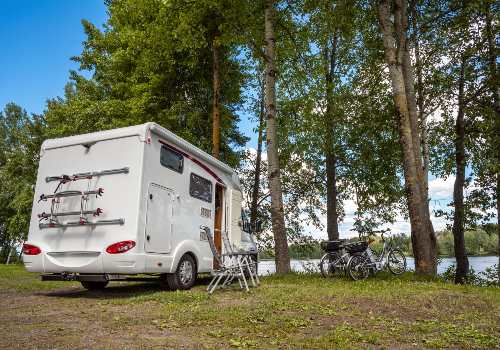
Once you get your campground running and word of mouth spreads from happy campers, you can take a step back and watch what aspects of your park make money and where you can improve profits.
Most new RV park owners see that having a basketball court isn’t going to make money, and they are better off changing that space into a campsite or two. You may have a high amount of people calling to reserve spots for big fifth-wheels or motorhomes, so you put in five more deluxe campsites.
There are many options to increase campground profits, aside from raising campsite rates and making ownership more fun and interesting.
5. Many RV Parks Are Seasonal
Each region of the country will have RV traffic through their campground with seasonal highs and lows.
The busy seasons are summer and winter in the south, with a lesser crowd during the spring and fall months.
In the north, late spring through early fall will be hopping, but winter may not provide any income, especially if it snows a lot.
As an RV park owner, you can use the seasonal flow to your advantage. You can opt to work your butt off during the busy season and close the park and take personal time for the winter months, or you can take several long breaks throughout the year and let your manager take over the daily tasks.
Once you learn the ebb and flow of guests through your park, you can tailor your life around it, so you don’t miss out on profits or time to decompress from all your hard work.
5 Cons of Campground Ownership
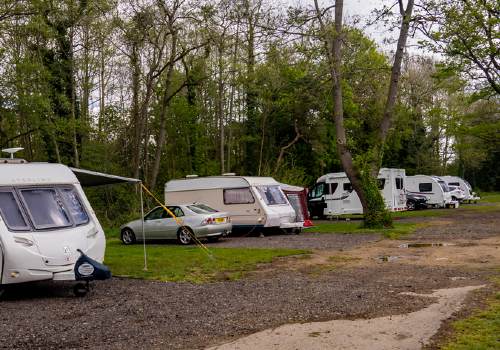
1. It Takes Experience and 24/7 Attention to Get It Right
When I was a newbie RVer, I gave no thought to what it took to run a campground. It was all about saying hi to the staff, kicking back at my campsite, and meeting new people.
After a few workamping stints, I have a new-found appreciation for RV park owners and staff because running a campground means you have to have the skills to juggle the following roles:
- Customer service angel (or bouncer)
- Computer genius
- Bookkeeping master
- Landscaper
- Plumbing, electrical, construction, and digital expert
- Inventory analyst
- RV Troubleshooter
- Staff manager
- County and state regulations gatekeeper
- 24-hour on-call saviour
Needless to say, meeting these demands consistently can be quite stressful, so possessing a positive attitude and a good sense of humor is essential.
I’ll never forget the RV park owner who got a call on the emergency number in the middle of the night because the guest was out of salt. Yes, salt – and the owner got out of bed, took the shaker off his table, and brought it to the guest.
Needless to say, that campground has five-star reviews, and the owner (who makes over a $200K yearly profit) is why.
Want to Connect With a Community of Over 1,078 RV Enthusiasts?
Some RV park owners may not have what it takes, and those inevitably end up being the parks that get a bad reputation for having “mean owners” or “horrible management.”
A string of bad reviews can be the kiss of death for any park and can take years to overcome as most RVers diligently scour campground ratings before booking.
If you feel you’re not up to the tasks above, do find competent staff who can handle running the park for you.
2. The Time Investment Will Take Its Toll
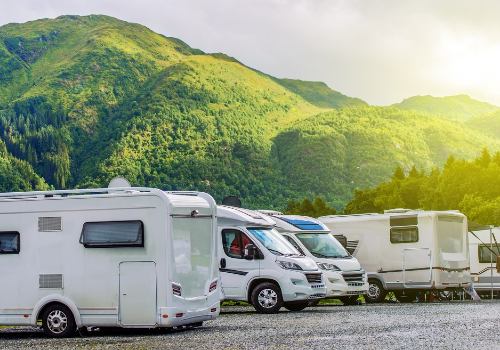
Unless you’re running a campground with your entire family, you need to consider you’re probably going to miss out on many events, such as weddings, birthdays, and other celebrations, because you will spend your time catering to guests on weekends and holiday breaks.
If you don’t want to give up time with friends and family outside of your RV park, then build a team of reliable managers who can run the park profitably in your absence.
3. You Probably Won’t Break Even for Awhile
A brand new or “under new ownership” campground will take time to build a clientele unless you’re in a trendy vacation destination where any campsite will rent out fast.
Expect some rough going financially at first, and don’t feel like you made a poor investment if you don’t break even in the first year or two. It can take upwards of five years to establish a well-run campground and have all your campsites rented regularly.
4. You Need a Stream of Cash for Constant Maintenance
The joys of RV park ownership include guests who run down power pedestals, break water mains, and clog sewer pipes.
Bathrooms will need toilet paper, the pool will need chemicals, and so on down the line.
You must have a cash reserve to handle the continual maintenance and repairs that will occur on a nearly daily basis. That means putting aside a good chunk of your profits for a rainy day so you can keep guests happy and your park running smoothly.
5. You Need to Balance Customer Service and a Tough Backbone
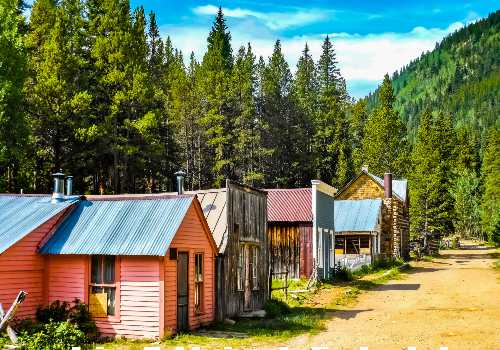
There’s a fine line between a friendly RV park owner and being firm when guests aren’t behaving properly.
You will have to evict guests from your park at some point, and sometimes, that may mean calling in the police to escort them out.
If you set rules for your guests, you must enforce them, or your park will get a bad reputation, and bookings will drop. You can’t ever let guests push you around, but you need to be as respectful as possible when dealing with them.
Features RV Guests Love
Don’t forget that repeat customers and word-of-mouth referrals from happy campers will keep your bottom line strong.
Here are the top features you can provide your guests to keep them coming back season after season:
- Swimming pool (a separate adults-only pool is even better)
- High-speed internet (make sure it works at peak usage in a full park)
- Dog walk, dog run, pet washing station (most RVers bring along pets)
- Clean bathhouses with spacious shower stalls (a luxury most parks fail to provide)
- Laundry room (easy profits as RVers love a convenient way to wash clothes)
- A fun theme that sets your RV park apart (makes your park a memorable destination)
- 24/7 security (everyone wants to feel safe)
- Camp store (make money in-house on standard camping supplies)
- Kayak, canoe, bicycle, or golf cart rentals (another way to increase profits and provide guests with an onsite activity)
- Organized activities (draw families with kids or snowbirds to your RV park)
Final Thoughts
There are millions of RVers hitting the road every day, and all need a place to park for a night, week, month, or more.
All will be spending their vacation dollars somewhere, so why not let it be your new RV park? You can make a profit with a well-run campground that gives guests what they want – a clean, safe, and fun camping adventure.
I hope you use the information above to start planning a new RV park venture or to buy out an existing campground for financial freedom.
When you do it right, you can reap the rewards of making incredible vacation memories for your guests and seeing your profits grow each year!
The Pros & Cons of Investing in RV Parks (Video)
"Man cannot discover new oceans unless he has the courage to lose sight of the shore."
-- Andre Gide

